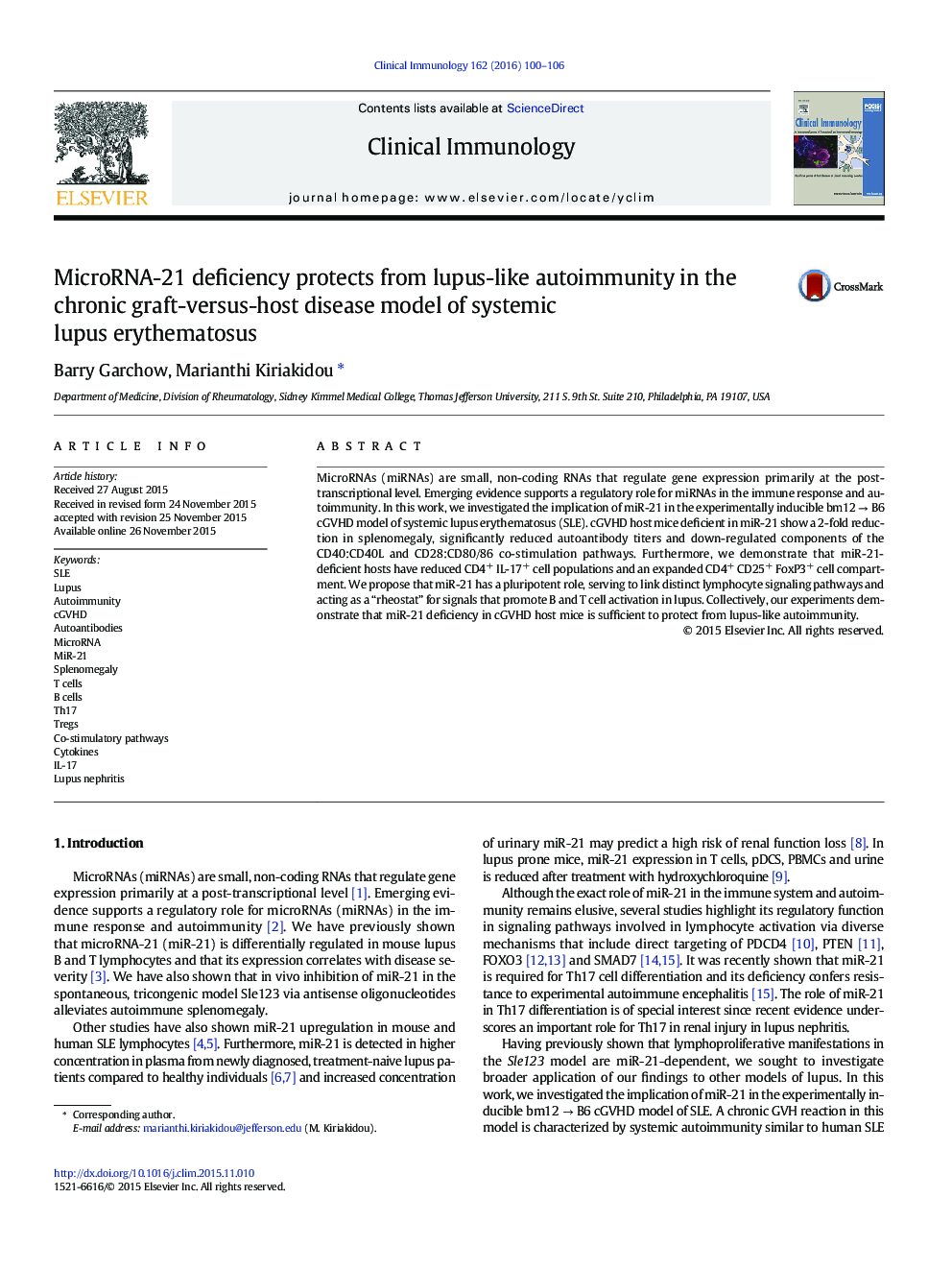| Article ID | Journal | Published Year | Pages | File Type |
|---|---|---|---|---|
| 6087018 | Clinical Immunology | 2016 | 7 Pages |
â¢MiR-21 deficiency in the cGVHD lupus model protects from autoimmunity.â¢MiR-21-deficiency alleviates autoimmune splenomegaly.â¢MiR-21-deficient hosts have reduced proteinuria and autoantibody titers.â¢MiR-21-deficiency down-regulates components of the CD28:CD80/86 and CD40:CD154 co-stimulatory pathways.â¢MiR-21-deficient hosts have reduced Th17 cell populations and an expanded Treg compartment.
MicroRNAs (miRNAs) are small, non-coding RNAs that regulate gene expression primarily at the post-transcriptional level. Emerging evidence supports a regulatory role for miRNAs in the immune response and autoimmunity. In this work, we investigated the implication of miR-21 in the experimentally inducible bm12 â B6 cGVHD model of systemic lupus erythematosus (SLE). cGVHD host mice deficient in miR-21 show a 2-fold reduction in splenomegaly, significantly reduced autoantibody titers and down-regulated components of the CD40:CD40L and CD28:CD80/86 co-stimulation pathways. Furthermore, we demonstrate that miR-21-deficient hosts have reduced CD4+ IL-17+ cell populations and an expanded CD4+ CD25+ FoxP3+ cell compartment. We propose that miR-21 has a pluripotent role, serving to link distinct lymphocyte signaling pathways and acting as a “rheostat” for signals that promote B and T cell activation in lupus. Collectively, our experiments demonstrate that miR-21 deficiency in cGVHD host mice is sufficient to protect from lupus-like autoimmunity.
